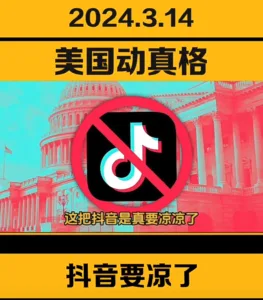(图片来源:多伦多星报)
最新消息:据Toronto Star 20:41 报道,TTC工人的罢工结束,到今天下午5:00,巴士和街车基本恢复运行;Bloor-Danforth 线地铁在傍晚6:30 开始运营,但Yonge-University 地铁线截至发稿时仍然未恢复。
今天下午2点,Brian McLean(安省劳工关系局副主席)发布命令说,TTC工人的罢工为非法,并命令他们立即返回工作岗位。
今天早些时候,TTC总经理Rick Ducharme表示他有信心让多伦多公交系统罢工终止并在下午重新恢复正常。
Ducharme的自信来自于安省劳工厅的“停止及禁止令”(cease and desist order)从而要求8,500名TTC工人重新返回工作。

尽管此项禁令在早晨7点半就已发布,但并未产生预期效力,一直到下午2点半钟,TTC员工们依然无动于衷,有的员工公开说,“我们只听从工会领袖的指示,没有Bob Kinnear发话,我们不会去干活。
”
按照TTC律师的说法,工会领袖们本来就是在与TTC管理层在玩游戏,本来说好今天早上会面协商有关事情并解决纠纷,“但怎么都找不到他们的人影,”在多伦多今年以来最热的一天,他们“把整个城市当作人质来要挟。
”
工会领袖们在午后才不紧不慢地到达与会地点。
劳资双方的律师唇枪舌剑争论了长达45分钟,依然各持己见,互不相让。
TTC律师指责工会是非法罢工,工会律师则反过来谴责资方对工会的要求漠不关心,一拖再拖,从而酿成目前的局面。
工会方面特别提到司机的安全、保健供款及工作评估等问题,而公车局将清洁工和地铁轨道工的日班转为夜班不仅让工人和工会不满,更成为此次罢工的导火线。
市民和上班员工更是怨声载道,因为他们事前并没有得到半点警告。
有的谴责出租车司机全然不顾大家遭遇的困境,连搭个共乘车也不让;而车上的乘客也多少有些幸灾乐祸,看到别人着急的样子,表现出一幅爱莫能助的神情,让人恼火。
《多伦多星报》记者还观察到,有些TTC员工若无其事地闲逛,有的则干脆在车站或工作地点附近打瞌睡。
此时,TTC总经理Rick DucharmeDucharme试图让今天下午TTC恢复运作的努力宣告失败。
他说全靠TTC上下班的上班族们今天下午的高峰时间可能要八仙过海-各显神通了;至于明天早上多伦多公交系统能否恢复运作,这位TTC的老总似乎也没有把握。
根据《多伦多星报》的最新消息,安省劳工厅今天发出第二份 “停止及禁止令”(cease and desist order),市长苗大伟也将于下午3时作电视讲话,向市民通报有关进展的情况。
如须了解最新进展,可致电416 393-4636,或上网查询:www.ttc.ca。
(吴楚河)
详情请见今天晚间20:41多伦多星报的报道。
~~~~~~~~~~~~~~~~~~~
Most TTC service restored
Wildcat strike shuts out 800,000 daily transit riders
May 29, 2006. 08:41 PM
NICOLAAS VAN RIJN
STAFF REPORTER
The wildcat strikers who shut down Toronto’s transit system went back to work in fits and starts during the evening rush hour today, ending an illegal 11-hour labour dispute that few saw coming.
“I’m sorry for the inconvenience,” said the operator of a 510 Spadina streetcar, putting his hand over the farebox as harried commuters came on board.
It was a small gesture that fell far short of sweeping away the ill feelings generated by the strike, which seemed to come out of nowhere and blindsided the hundreds of thousands of commuters who use the TTC daily.
About an hour after an Ontario Labour Relations Board order at 2 p.m. – the second of the day ordering striking TTC employees back to work – Toronto Mayor David Miller called a City Hall press conference to announce the union was obeying the order this time.
The results were quick to see.
By 4:30 p.m. scattered streetcars and buses had begun to appear, and the east-west Bloor-Danforth line was running by 6 p.m.
But continued picketing at the Wilson subway yards, where trains are marshalled, kept doors on the north-south Yonge-University line locked until shortly after 8:30 p.m. when the first train headed south.
The break in the illegal wildcat strike, which started shortly after midnight when maintenance workers refused to report for work and threw up picket lines, came with the afternoon order from labour board vice-chair Brian McLean.
Shortly after McLean’s order, the union began calling its members and telling them to return to work.
However, Toronto Transit Commission managers said earlier they needed at least three hours to get the system rolling again, all but eliminating prospects for an easy ride home for the hundreds of thousands of commuters who daily depend on the TTC.
Miller, at his 3 p.m. news conference at Toronto City Hall, acknowledged the difficulties TTC drivers and other employees face on the job, but said that’s no reason for not showing up to work.
“I’m pleased the labour board has strongly endorsed the argument of the TTC, that the work stoppage is illegal,” Miller said.
“This stoppage was never acceptable, I’m very pleased the board has upheld the TTC’s right to manage its system properly.”
The wildcat strike by the Amalgamated Transit Union this morning blindsided hundreds of thousands of commuters as they arrived at bus stops, subway stations and, in a ripple effect that spread throughout the GTA, GO Transit and area transit systems that feed into the TTC.
No buses. No subway.
In one extreme incident, passengers were ordered off a Don Mills Ave. bus when it stopped at Finch. A union representative boarded the bus, ordered the passengers off and instructed the driver to return to base and park the vehicle.
The wildcat strike continued when the union defied a labour board cease-and-desist order, issued at 7:30 a.m., requiring TTC workers to report for work immediately.
When TTC lawyers tried to serve the union with the order, TTC lawyer Michael Kennedy told the labour board, union officials couldn’t be found.
“They were hiding from service as they were shutting down the city,” Kennedy said.
Instead of negotiating, he added, the union has decided to “hold the city hostage.”
Informed of the order, union stewards instructed striking workers to stand their ground, saying the command to head back to work would only come from union chief Bob Kinnear.
“Bob Kinnear is our president, and Bob Kinnear will direct us,” said one union member.
Premier Dalton McGuinty said early this afternoon that the transit workers were breaking the law and called on them to respect their collective agreement.
But McGuinty said he was not prepared to consider declaring transit an essential service “in the heat of the moment.”
Toronto Mayor David Miller warned the union was courting consequences that included possible court action, jail time and fines if it didn’t send its members back to work.
The next step would have been going to court to seek an injunction to enforce that order, Miller said after it became clear the union was defying the labour board’s back-to-work order. “It should be resolved,” he said.
A meeting planned for the two sides at the labour board to resolve the issue this morning was delayed when union officials didn’t show up at the University Ave. offices until shortly after noon.
“It doesn’t look good,” Gary Webster, general manager of operations for the TTC, said of prospects of having the system running again for the evening rush hour.
“But we’re obviously here to break the logjam.”
When they finally did start talking, union and TTC lawyers argued for 45 minutes this afternoon, with the TTC insisting the system shutdown was due to an illegal strike, while the union maintained it was due to a lockout.
The TTC, union lawyer Heather Alden told the board, has been “deliberately provocative” in its treatment of maintenance employees, leading to the overnight shutdown, which began in full force at 4 a.m.
The TTC was also threatening to seek a court order forcing its drivers, train operators and other employees to end the illegal job action, which began when hundreds of maintenance workers refused to report for work overnight.
The labour board’s order continued to be ignored throughout the day by the union’s 8,500 members
An illegal strike by New York City transit workers last December led to jail time for the union head and fines in the millions of dollars for the union.
Earlier in the day, TTC general manager Rick Ducharme was holding out some hope that the wildcat strike would end before the afternoon rush hour.
Commuters were angry at the inconvenience, the lack of warning, the impossibility of alternate arrangements and the day’s heat, humidity and smog, which made it feel like 35C.
The beginning of the work week wasn’t a smooth one for Alex Poulous, who said she was annoyed that taxi drivers and passengers weren’t making efforts to carpool.
Poulous, who said she understood the plight of TTC drivers who complain of safety issues, added the current situation is unworkable.
“Who is it that suffers? It’s the people who can’t afford cars,” she said. “The message being sent is that driving is the way to go – and that’s ridiculous.”
Poulous said she’d be able to get to work on her own eventually, but some of her fellow riders were bound to be left in the lurch.
“There’s a woman who takes my bus every morning with her four kids to get to school,” Poulous said. “What’s she going to do?”
TTC managers were clearly angry at the illegal job action, which for the 800,000 people who use the system daily, seemed to come out of nowhere on the hottest day of the year so far.
“I’m frustrated,” said the TTC’s Ducharme of the union’s decision to ignore the labour board’s back-to-work order.
“We approached the ministry of labour for assistance saying this is all illegal. We did get the cease-and-desist order.”
The union’s Kinnear, who claims the TTC has been spoiling for a fight for months, blamed transit managers for sparking the crisis.
“They locked the gates and indicated that there would be no service long before our operators had an opportunity to report to work,” Kinnear said.
But the union’s own website told a different story, saying that employees had “walked off the job” this morning.
Kinnear wasn’t forecasting a quick end to the dispute.
When asked how long the strike would last, the union boss told CBC News, “I would assume that it would be at least for (Monday), depending on what happens down at the labour board.”
For Mayor David Miller – himself accused of incompetence in heading off the management-union battle – the issue was simple.
Torontonians, he said, “shouldn’t have to put up with it. It’s not right.
“It’s illegal, and it’s time for Mr. Kinnear to direct his members to their job. It’s the law.”
But Councillor Jane Pitfield, who is running against Miller for Toronto mayor in this fall’s municipal election, said both the mayor and TTC chair Howard Moscoe should have seen the wildcat strike coming – and acted much sooner.
“I blame the chair of the TTC and I blame the mayor,” Pitfield said, accusing Miller of a pro-union stance that limits his effectiveness.
“Ultimately the mayor is in charge of the city,” Pitfield said, adding Miller is “beholden to unions,” and that hampers his ability to deal with labour issues.
“He will not interfere, and that is a huge void of leadership, a big problem, because it empowers the unions,” she said.
A union-management battle, brewing for months, took on added urgency last week when Kinnear, raising driver safety issues, said drivers would no longer confront passenger who refused to pay when boarding a bus.
As well as driver security, the issues include health premiums, job evaluations and – one of the most contentious – shifting employees who do track maintenance and cleaning to the night shift.
The TTC wants 53 of 87 janitors and 53 of 91 subway track workers permanently moved to the night shift from day jobs as part of a cost-savings measure.
The first sign of this morning’s illegal strike came at about 12:25 a.m., when it became clear scores of maintenance workers were refusing to report for work at the Greenwood and Davisville subway marshalling yards.
By 4 a.m. the system was in full shutdown mode and it became clear the buses and trains weren’t going anywhere; making it difficult to alert a sleeping city to the chaos ahead.
Ironically, the dispute came on the first day of Bike Week and Miller, attending a previously-scheduled event at the corner of Yonge and Bloor Sts., paid tribute to Torontonians for putting up with the inconvenience.
“It’s a great spirit Torontonians have,” Miller said. “They’re responding tremendously in putting up with this. But they shouldn’t have to put up with this.”
Today’s hot weather and poor air quality is also an issue, Miller noted. “It’s unfortunate it’s a smog day,” Miller said, “and a lot of people would like to take the TTC on a smog day. So I say to Torontonians, do what you can.”
Pitfield saw some irony in the Bike Week promotions, saying the timing was unfortunate.
“People in cars didn’t appreciate the flow of traffic being stopped to allow the politicians on bicycles to go cruising on by with smiles on our faces,” she said.
Toronto EMS was braced for extra calls as people struggled with the heat, smog, humidity and added stress of walking or bicycling to work.
Commuters, who didn’t much care how the dispute began, simply wanted it to end. Many expressed anger at the TTC’s lack of warning about possible labour action.
General contractor Mike Jones, who ran into locked doors at the Bathurst subway station on his way to work shortly before 8 a.m., was outraged.
“It’s a bunch of B.S.,” he said outside the station as scores of other commuters milled about around him.
“You can’t leave a couple million people with no way of getting around,” Jones added, noting he expected grief from his boss for showing up four or five hours late.
Sophia Rzutidlo, also stranded outside Bathurst station, was equally irate.
“Didn’t they announce it?” she asked, waving her arms. “How was I supposed to know?”
It wasn’t any better anywhere – except, perhaps, for riders of the seven buses out of the normal 1,300 that somehow made it onto their routes this morning.
Outside the Spadina subway station, profanities echoed as shocked travellers were confronted with locked doors and a hand-written sign “Closed. No buses. No trains.”
Some didn’t even get that much warning.
“I walked to Dupont station because I thought it might be a north-south thing,” Rosie Lewis said. “So then I walked to Spadina to catch the east-west because there were no signs on the doors.”
At bus stops throughout the city, commuters stood in groups talking, many clutching cellphones and pleading for rides from neighbours or co-workers.
Factory worker Silvia Gallant heard about a possible service disruption on the news Sunday, but had no choice but to hope for the best and wait.
“What else can I do?” she said, throwing her cigarette into the empty street.
Chaos reigned outside the city, too, wherever Toronto-bound commuters gathered for their morning rides in to work.
At the Unionville GO station the parking lot was packed, with only 10 spots left, at 8:12 a.m. – something that normally only happens by noon.
Drivers, who generally have an easy time finding a parking spot, were left circling, and it wasn’t much better on the trains, where seats were scarce and many passengers were stuck jammed up against their neighbours in the aisles.
Strangers on one train commiserated, one man shaking his head in confusion and asking” “Didn’t they just negotiate a contract?”
Others, clearly worried about showing up late for work, were being comforted by neighbours assuring them that bosses would understand the delay.
But several of the city’s major employers, in an informal poll, reported no major problems with people showing up late for work.
Brad Ross, spokesperson for the City of Toronto, said most employees were showing up and the rest were being encouraged to do so whatever they could.
“We’re telling staff to do the best you can to get in to work and if you have a problem to check with your supervisor,” Ross said. “We’re trying to be flexible.”
Others kicked in plans to work from home, or hastily arranged for last-minute vacation or lieu days.
But business was coping.
Kathy Bevan, a spokesperson for RBC, said that despite some late-shows, “all the essentials have been in place.”
Illegal transit strikes have resulted in fines and jail time in the U.S.
Just last December, New York City’s transit union organized an illegal strike that halted buses and subways for three days.
In April, a judge fined the union $2.5 million (U.S.) for the strike and union leader Roger Toussaint was ordered jailed for 10 days for contempt. He was released after serving four days, for good behaviour.
This is not the first time TTC workers have walked off the job. Workers staged a two-day transit strike in 1999 and, in 1991, an eight-day strike ended with back-to-work legislation.








